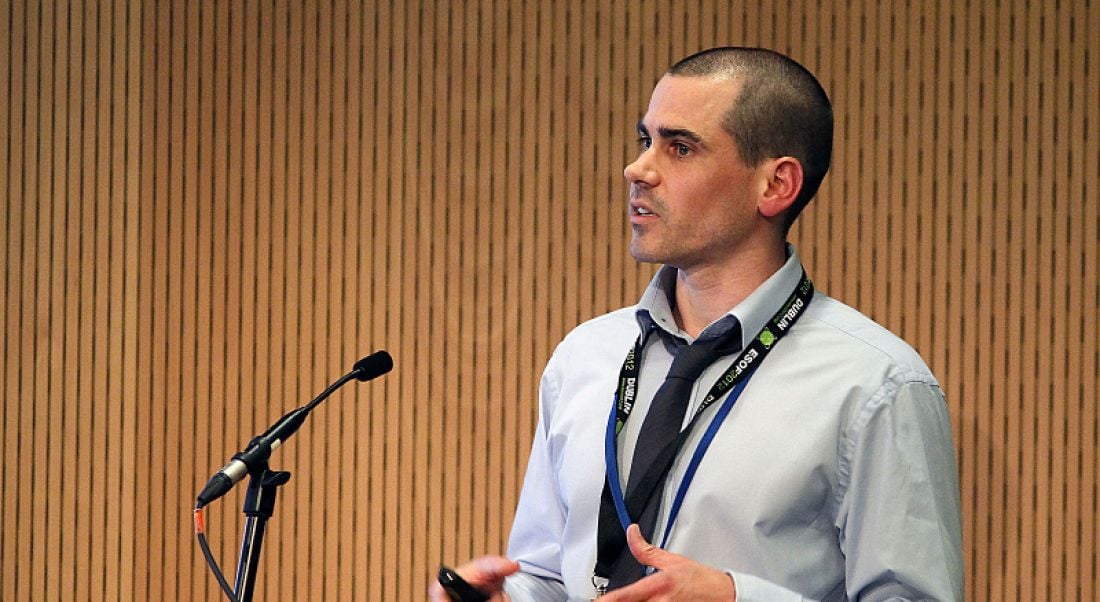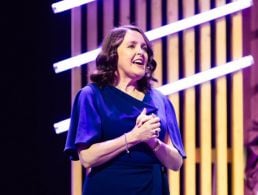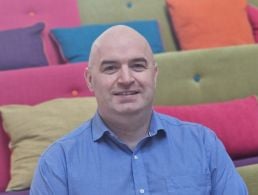In the early days of a career in tech, it can sometimes be hard to envisage where you will end up, or picture what success will look like. Hearing from someone who has already achieved success can make your career path seem much more tangible.
Freddy Lecue, a research manager and principal scientist in large-scale reasoning systems at Accenture, talks us through what led him to this job and this place, and gives us insight into growing a tech career.
What first stirred your interest in a career in tech?
With a background in mathematics and computer science, I have always been interested in technology and, in particular, in building new systems that solve complex problems, ideally with disruptive effects on society.
The technology area is one of the rare domains where you can prove any idea by simply building it. By building it, you make a point. This could be a system, a prototype, a proof of concept, or a piece of engineering code. Anything in the technology domain is designed for dreamers and makers.
I always wanted to make things real, and to prove them. The technology field simply makes my wishes a reality.
What led you to the role you now have?
My current position is principal scientist and research manager in large scale reasoning systems at Accenture. In addition, I am an associate research staff member at INRIA, a public research body dedicated to digital science and technology in France.
I received a research habilitation (HdR – accreditation to supervise research) from the University of Nice in 2015, and a PhD in computer science (major artificial intelligence) from École des Mines de Saint-Etienne in 2008. My PhD thesis was sponsored by Orange Labs and was awarded by the French Association of Artificial Intelligence.
Before joining Accenture Tech Labs in January 2016, I was a research scientist and lead investigator in large scale reasoning systems at IBM Research. Prior to this I was a research fellow at the University of Manchester.
What were the biggest surprises or challenges you encountered on your career path?
One of the challenges I am still facing is scalability and, in particular, re-usability – in other words, how to design and build systems that are not restricted to solving one specific, over-constrained problem, in one application domain.
Technology tends to deliver a solution per application, or for a limited number of them. I truly believe that systems can be better engineered to scale across domains.
In Accenture, we are encouraged to design and build artificial intelligence systems, which are scalable across industries. This is definitely a strong advantage compared to other companies, which are more application-specific, and so tend not to build large-scale solutions.
Was there any one person who was particularly influential as your career developed?
Back in 2005, I was mentored by Dr Alain Leger, the co-inventor of JPEG, one of the most used compression techniques for colour images. He really helped me with how to adapt, extend and build technology and automated systems in a very systematic, robust and professional way.
Most importantly, he taught me how to do all of these while still having fun.
Innovation was always his motto, and I still aim to apply this principle on a daily basis.
What do you enjoy about your job?
Every day, I learn completely new and different things, from deep technology – such as new methods for machine reasoning – to soft skills, like management or client-facing practices.
The Tech Labs are part of Accenture’s Centre for Innovation, where multidisciplinary teams work on some of business and society’s most complex problems. This means that I am collaborating with top engineers, researchers, technology leaders and domain experts from academia and the broader ecosystem.
The mission for my team and for me is to solve new real-world and open research problems. We constantly need to deeply re-think and re-formulate the problems to develop innovative ideas and build systems that are scalable.
As part of this broader ambition, it’s exciting to think that work I do may become a patent or be published in international academic publications.
What aspects of your personality do you feel make you suited to this job?
Curiosity is definitely a plus in the tech world, simply because our world keeps re-inventing itself. A new technology today might be obsolete tomorrow. It is very important to try, experiment, complement, and push the boundaries of new technologies every day. This is probably what every technologist should do.
Research in technology is, by definition, a collaborative effort. We need different views from different domains (academia, industry) and from different experts (researchers, engineers, domain experts, business owners, global leaders and lead strategists).
Working in the joint environment of Accenture’s Technology Labs and Centre for Innovation brings all these experts together to solve real societal issues on behalf of our clients. I truly believe that success in technology needs collaboration. I, as an individual, simply cannot achieve what a multi-disciplinary team effort can.
How did Accenture support you on your career path?
With no real world data, application, or invested stakeholder, it is rather difficult to evaluate the impact of any research or technology. Accenture gives me the perfect context to apply, tune and, more importantly, extend the functionalities of cutting-edge artificial intelligence technologies for real-world applications.
We are asked to understand how to combine internet of things with artificial intelligence systems on a daily basis. This is a really stimulating environment.
Accenture is dealing with the most complex research problems of the world’s leading organisations. Every day, I am thrilled to evaluate the performance and results of our innovative artificial intelligent systems. I believe that Accenture is giving me the most ideal and direct path from innovation to impact.
What advice would you give to those considering a career in tech, or just starting out in one?
Be passionate. If you believe in your idea, prove it by building it.
Challenge everything. Understand and learn how core and fundamental technologies – from artificial intelligent systems to internet of things infrastructures – have been designed and built.
All things being equal, the simplest solution tends to be the best one. Never try to complicate or over-engineer solutions.
Never let someone tell you your idea is impossible. The word impossible is not French!
Looking for tech jobs in Ireland? Check out our Featured Employers section for information on companies hiring right now.




